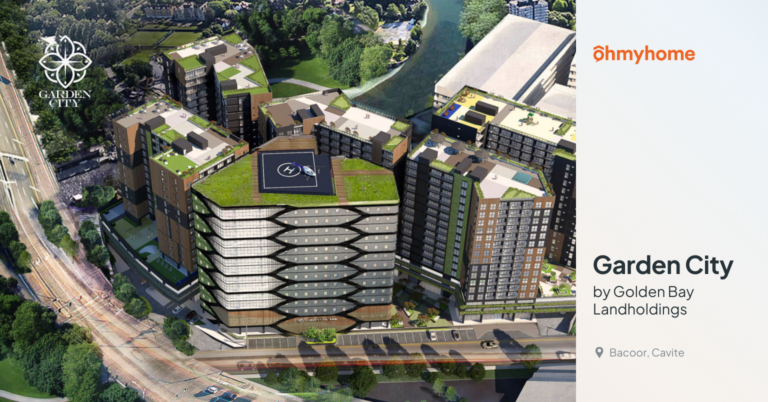For a first-time homebuyer, nothing beats the exhilaration of being handed the keys to your first house. Getting the right property at the right location at the right price is often a culmination of detailed research, talking to the right salespeople, and consultations with financial lenders.
Unfortunately, many first-time home buyers neither have the time nor inclination to take deep dives when choosing their dream property. As a result, they get lost in the complications of the buying process and get surprised by how much a home actually costs.
As the Philippines’ premiere property tech platform, Ohmyhome aims to provide Filipino homebuyers with complete and accurate information needed to make an informed decision. We partnered with over 200 of the country’s top real estate developers to provide access to over 80,000 units from over 1,000 properties. However, Ohmyhome also realizes that information on individual properties is just the first step in prudent home buying.
Six Practical Tips for the First-Time Homebuyer
Filipino households wanting to buy a house for the first time might find the following information handy while narrowing down their home choices. Ohmyhome presents the following six practical tips for the first-time home buyer.
1. Location Is Always a Consideration
It’s cliche, but location will always be a main factor when choosing a property, especially for a first-time homebuyer. Of course, most people will think of prime properties in highly urbanized or tourism-dense locations such as BGC, Makati, Boracay, or Palawan. For these cases, prime properties come at premium prices.
Those buying homes for the first time should factor location together with basic services. When choosing your first home, budget will also be a primary consideration. However, choosing the cheapest property doesn’t necessarily equate to getting a great deal. At the least, prospective homeowners should check every location for the availability of basic services such as electricity, water, and internet.
Many new subdivisions (especially those in the provinces) offer rock-bottom prices for house and lot packages, but developers have yet to close a deal on the internet services or even electricity provider. As to water availability, check if local utility operators service the area or if deep wells and groundwater are primary options. For condominiums in urban areas, check if mobile phone signals are strong and internet service is available.
2. Check the Fine Print When Considering “No Down Payment” Offers
Take extra caution when dealing with real estate agents and advertisements who openly trumpet a “No Down Payment” or “No Spot Down Payment” offer followed by low monthly payments. While the project is legit, these offers might be the result of creative marketing or deceptive advertising practices. As a first-time homebuyer, you might find yourself taking these offers at face value.
Real estate purchases outside of full cash transactions usually follow the 20/80 rule where the buyer pays the 20% down payment (equity) outright and arranges for financing for the remaining 80%. Some developers or agents offer pre-selling homes with zero down payment or low dp options, they actually are selling a different idea. Since the property is pre-selling and will take some time to complete, developers can offer buyers to pay for the 20% equity via installment rates at low monthly prices. But it’s only low because the total represents one-fifth of the total contract price.
Once the project is completed, the remaining 80% becomes due, and it’s up to the buyer to work out an arrangement with a bank or apply for in-house financing. What about the down payment? Buyers who have yet to arrange for the full payment of the equity will have to continue paying it at the same time as the 80% principal kicks in.
A good rule for prospective homebuyers is to have the 20% down payment available at the time of purchase. Always look at the fine print before considering these low down payment schemes and know your rights as a homebuyer.
3. It’s Okay to Ask Questions and Look for Discounts
For some reason, many prospective homebuyers are too proud or too ashamed to ask for discounts or promo deals. Actually, many real estate agents and brokers will be happy to extend discounts when asked nicely. Just because you’re a first-time homebuyer doesn’t mean you can’t assert what you want.
Note that most sales agents who work for commissions will likely receive monthly incentives based on performance. Factors include the number of deals closed or the total sales revenue. Timing your deals near an agent’s monthly cutoff period can work in your favor. This is especially true if they’re nearing their quota and need to close one or two deals to raise their totals. This end-of-the-month rush explains the hockey stick effect in sales, where numbers go up during end-of-the-month transactions as salespeople go all in and offer discounts and promos in order to chalk more sales.
However, if your sales agent already hits the maximum quota, they can probably relax a bit. If you play along and let them process your transaction for the next month, you might get a few incentives thrown in. Either way, you can get a few thousand pesos off your contract price, waived documentation fees, or discounted insurance.
4. Learn the Hidden Costs of Buying a House
Unlike most retail purchases, buying a home comes with a lot of additional costs. As a first-time home buyer, you’ll need to realize that owning property comes with a number of responsibilities. Because property is a very valuable and limited resource, regulating agencies will need to make sure that all transactions get properly documented and certified above board. Of course, local agencies won’t do that for free but will instead charge for the service.
Thankfully, not all fees are for the buyer’s account. For example, sellers, as the original landowners, should shoulder the deed of sale. The developer is also on the hook for the documentary tax stamp equivalent to 1.5% of the total contract price. Since the seller will gain money from the transaction, they will also have to pay for the capital gains tax, which is around 6%.
However, note that some sellers will incorporate these costs into the total contract price. Meanwhile, buyers will have to shoulder the notarial costs, the local property transfer tax, and the registration fee. Sometimes, they’ll also need to pay a moving-in fee upon turnover. Additionally, buyers will need to purchase insurance for the property every year until the mortgage gets fully paid.
A First-time Homebuyer Should Have Some Extra Money Ready
Finally, new homeowners will have to pay the right property tax every year. Depending on your chosen location, your annual property tax can take a significant chunk of your tax budget. Make sure you know the local property tax codes so as not to be surprised by your dues every year. Of course, it’s better to find out the current tax rates before committing to a property purchase in the area.
So how much will all these add up for the first-time homebuyer? Again, it’s always best to go over the details with your real estate agent on who pays for what. Legitimate developers won’t bother hiding these fees, as they are well aware of their legal obligations when selling property.
For the buyer, just remember that as your real estate contract price goes higher, your fees and taxes will go up accordingly. Most buyer’s fees are based on percentages of the TCP or fair market value, whichever is higher. Setting aside an amount equivalent to 5%-10% of the property’s contract price might be a good rule of thumb. Having at least three months’ worth of monthly payments on standby is also a good idea.
5. The Best Interest Rate Is The One That Works for You
When banks and other lending institutions publish their interest rates, they usually show their lowest possible rates. However, the lowest rates don’t automatically apply to all the loans they process. Don’t be surprised when you receive a computation that’s significantly higher than advertised. While each bank has its own ways of determining loan rates, they usually consider the following when processing your application: age, annual and source income, property location, and property market value.
A Word on Interest Rates
Interest rates are usually fixed or variable, with each one having advantages and disadvantages. Fixed interest protects you against a future rise in rates during your contract period. However, it also ties you to the rate even if interest rates go down. Meanwhile, variable rates allow your interest rates to go down when the market craters, but it also means bigger payments when market rates rise.
While longer payment terms and lower interest rates might be important factors, always put your capacity to pay as your first consideration. If you’re liquid and can afford a higher monthly payment, you can avail of short-term loans with lower interest rates. However, if you prefer stretching your monthly income, expect banks to loan you money with a slightly higher interest rate that charges a smaller monthly but takes a longer time to pay.
6. Don’t Be Pressured and Focus on Getting the Best Deals
During the course of your home-buying adventures, many developers and sales agents will approach you and make their pitch. Take the time to listen carefully, but always check out the legitimacy of each offer. In many cases, a sales agent’s eagerness to close the deal can lead to unfulfilled promises.
Chief among these promises is a commitment to the turnover date. However, only the developer’s project manager can confirm the actual completion. Meanwhile, premature offers of discounts or flexible payment plans should eventually have the approval of a sales agent’s manager.
Finally, don’t commit to a sale unless you get approval from your bank. Unless you can pay the 80% principal, having down payment money won’t mean a thing. Having the bank’s go signal helps you avoid the headache of asking for a DP refund if the lender suddenly turns down your loan application.
Know Your Capability as a First-time Homebuyer
You alone know your exact capacity to take on a home purchase. Make a fair assessment of your financial capabilities and talk to your spouse or family members before signing anything. Becoming a first-time homebuyer is a serious commitment that needs serious thought beforehand. Even if you’ve already started house hunting and now realize you can’t afford a house now, there’s no shame in walking away. However, you don’t need to give up completely. Companies like Ohmyhome have partnered with many financial institutions to help you get the best and most affordable home deals.
Ohmyhome Helps the First-time Homebuyer Get the Best Deals
Are you a first-time home buyer with no idea where to start? Let Ohmyhome Philippines show you the way. The country’s leading property tech platform lists over 80,000 properties from over 1,000 projects built by 200 leading property developers. We’ll help you find your dream home based on your preferences for location, budget, and home type.
Ohmyhome will also set you up with our team of real estate professionals and customer service staff to guide you on the best deals and walk you through the entire home-buying process. It’s no wonder that over 8,000 happy customers have completed more than 13,000 transactions using the Ohmyhome Philippines platform.
Get the best homebuying experience by signing up for a free Ohmyhome account. You can also download our free iOS or Android app, or follow us on our Facebook, Instagram, or YouTube channels. Together, we can make your dream home a reality, so sign up now!






















































